 What Are The Common Causes Of Drain Blockages
What Are The Common Causes Of Drain Blockages
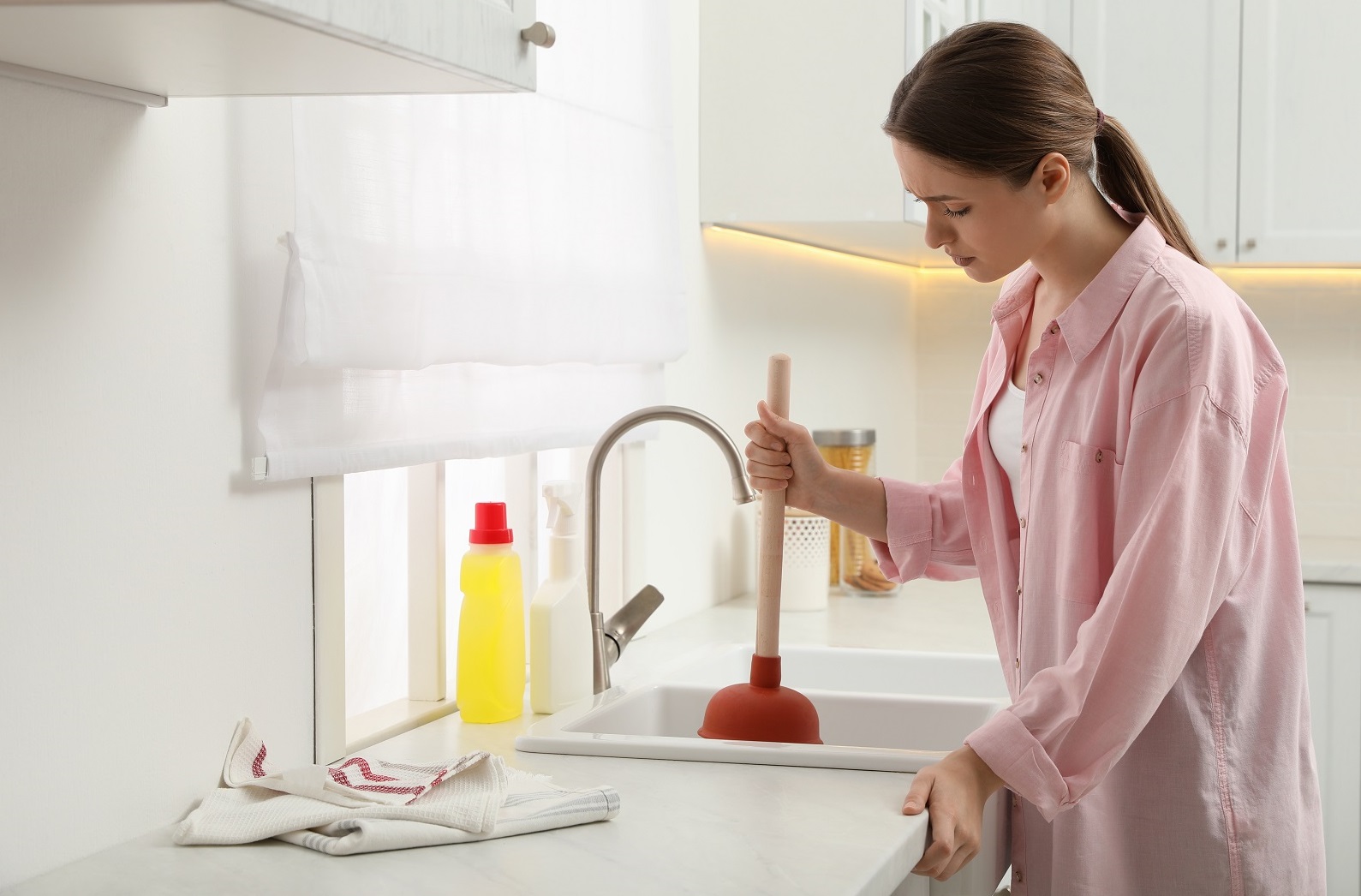
Drain blockages are a common issue that can significantly disrupt the functionality and safety of a property. These blockages occur when various materials accumulate within the plumbing system, obstructing the flow of wastewater. The consequences of such blockages range from minor inconveniences to severe plumbing failures, potentially leading to property damage and health hazards.
What Constitutes a Drain Blockage?
A drain blockage is typically characterised by the accumulation of substances such as fats, oils, grease (FOG), hair, toiletries, and other foreign objects that impede the normal flow of water through drainage pipes. These materials can clump together, forming clogs that restrict or completely block water passage.
Impact on Property Functionality and Safety
Blocked drains can lead to water backing up, which may cause flooding, property damage, and create an environment conducive to mould and bacteria growth. Such conditions pose risks to the structural integrity of the property and the health of its occupants.
Commonality of Blockages in Different Properties
Drain blockages are prevalent in both residential and commercial properties. However, they are particularly common in settings with high usage rates, such as restaurants and apartment complexes, where the volume of waste is greater.
The Crucial Role of Property Management in Addressing Blockages
For property owners, business owners, and facility managers, addressing drain blockages promptly is essential to maintain the property’s habitability and functionality. Timely intervention can prevent minor issues from escalating into costly repairs and ensure compliance with health and safety regulations.
Identifying the Primary Culprits Behind Drain Blockages
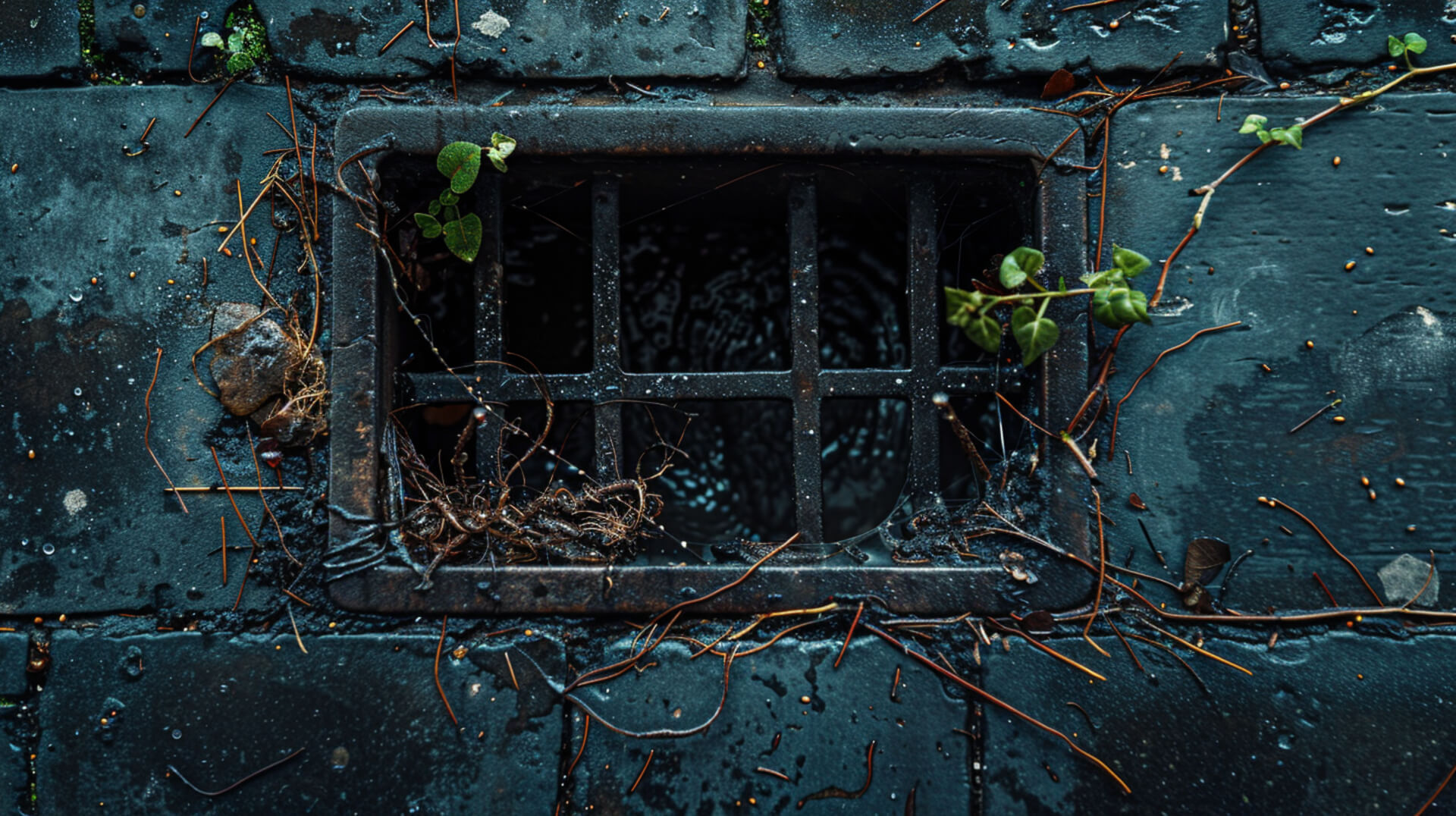
Understanding what causes drain blockages is essential for both prevention and remedy. Blockages can lead to significant inconvenience and, if left unaddressed, may result in costly repairs. Here are the primary materials that contribute to this common household issue:
Common Materials Causing Blockages
- Fats, Oils, and Grease (FOG): These substances are notorious for causing blockages. When poured down the drain, they cool and solidify, creating a sticky trap for other materials.
- Hair and Toiletries: Hair binds with grease, forming dense masses. Toiletries, especially those not designed to dissolve, can quickly obstruct pipes.
- Foreign Objects: Items such as toys and cotton buds are not meant to be flushed and can easily become lodged in the plumbing system.
Contribution of FOG to Blockages
FOG accumulates over time, narrowing the pipes and reducing water flow. This can lead to complete blockages that disrupt the drainage system.
Exacerbation by Hair and Toiletries
Hair and toiletries do not break down easily in water. Their accumulation can create significant clogs that prevent water from flowing freely.
Problems with Foreign Objects
Foreign objects like toys and cotton buds can cause immediate blockages. Unlike organic materials, they do not degrade and must be physically removed to clear the drain.
By being aware of these common causes, you can take proactive steps to prevent blockages and maintain a functional drainage system.
Environmental Factors Exacerbating Drain Blockages

Environmental elements play a significant role in the health of drainage systems. Understanding these factors can help in anticipating potential blockages and taking preventive measures.
Impact of Weather Conditions
- Heavy Rain and Storms: These weather events can overwhelm drainage systems, leading to overflows and blockages. Excess water can carry debris and sediment into drains, clogging them.
- Climate and Seasonal Changes: Different seasons bring varying challenges for drains. For example, autumn leaves may block outdoor drains, while winter can cause pipes to freeze and burst.
Tree Roots and Drainage Systems
- Tree Roots: Seeking moisture, tree roots can infiltrate sewer lines, causing blockages and even structural damage. Root intrusion is a common cause of sewer backups and requires professional attention.
Importance of Proper Waste Disposal
- Waste Disposal: Disposing of waste properly is crucial in preventing blockages. Non-biodegradable items and chemicals can disrupt the wastewater treatment process and should never be flushed or poured down drains.
By being vigilant about these environmental factors, you can better protect your property’s drainage system from blockages and maintain its integrity.
Legal and Regulatory Considerations for Drain Management
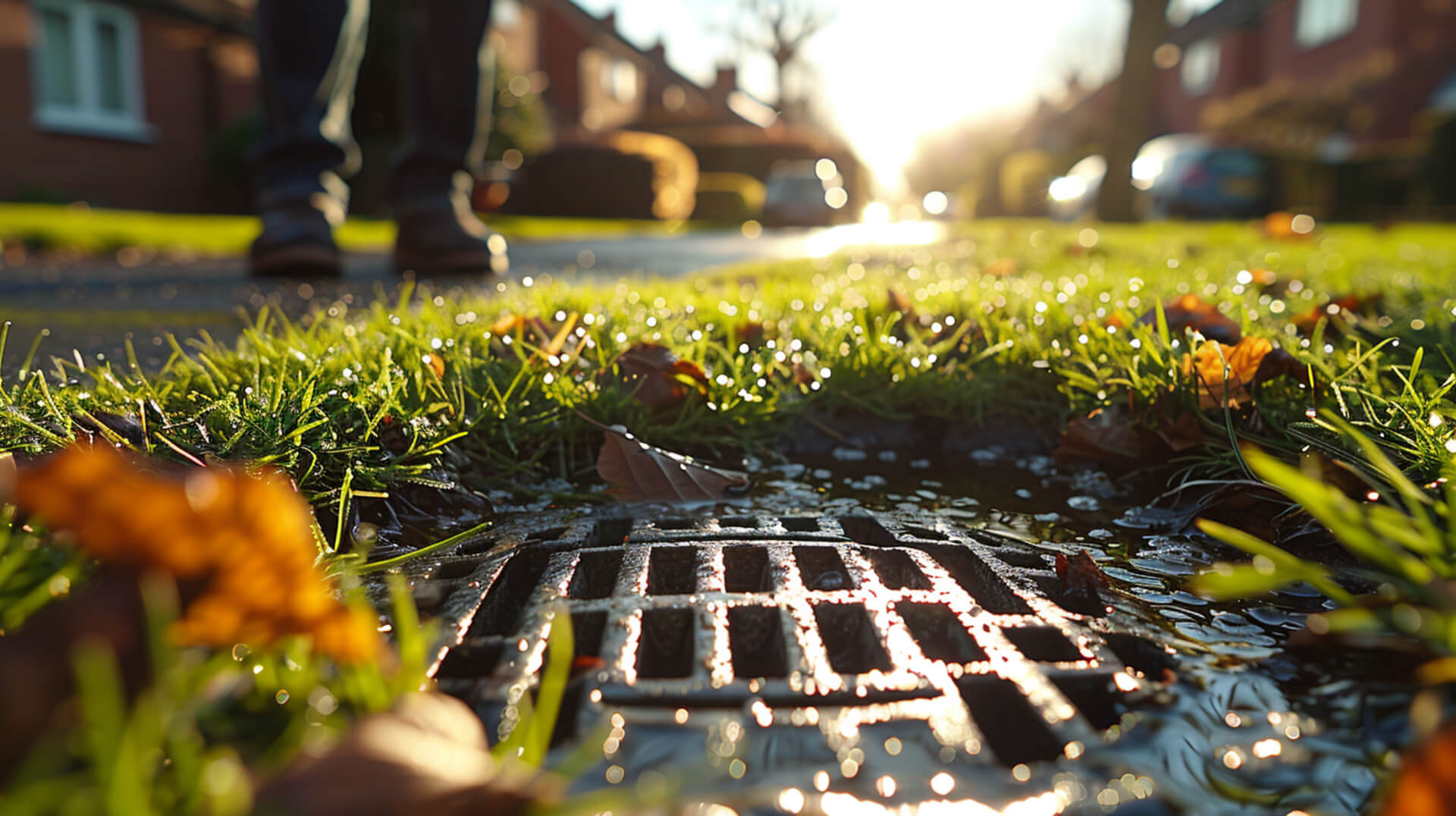
Navigating the legal landscape is crucial for maintaining a compliant and functional drainage system. Property owners, business owners, and facility managers must be aware of the regulations that govern drain blockage management.
Key Legal Frameworks
- Water Industry Act 1991: This act outlines the responsibilities of the sewage undertakers and the rights of property owners in the UK.
- Environmental Protection Acts: These acts provide guidelines on the disposal of waste to prevent environmental harm, including the management of drain blockages.
Impact of Building Regulations
- Building Regulations: These regulations stipulate the standards for drainage system installation and maintenance to ensure safety and functionality.
Importance of Environmental Compliance
- Environmental Acts Compliance: Adhering to these acts is essential to prevent pollution and protect the environment from the adverse effects of improper waste disposal.
Consequences of Non-Compliance
- Legal Implications: Failure to comply with these standards can result in penalties, legal action, and costly repairs. It is imperative to understand and follow the regulations to avoid such consequences.
By staying informed about these legal and regulatory considerations, you can ensure that your drainage system is not only effective but also compliant with the necessary standards.
Effective Prevention Strategies for Drain Blockages
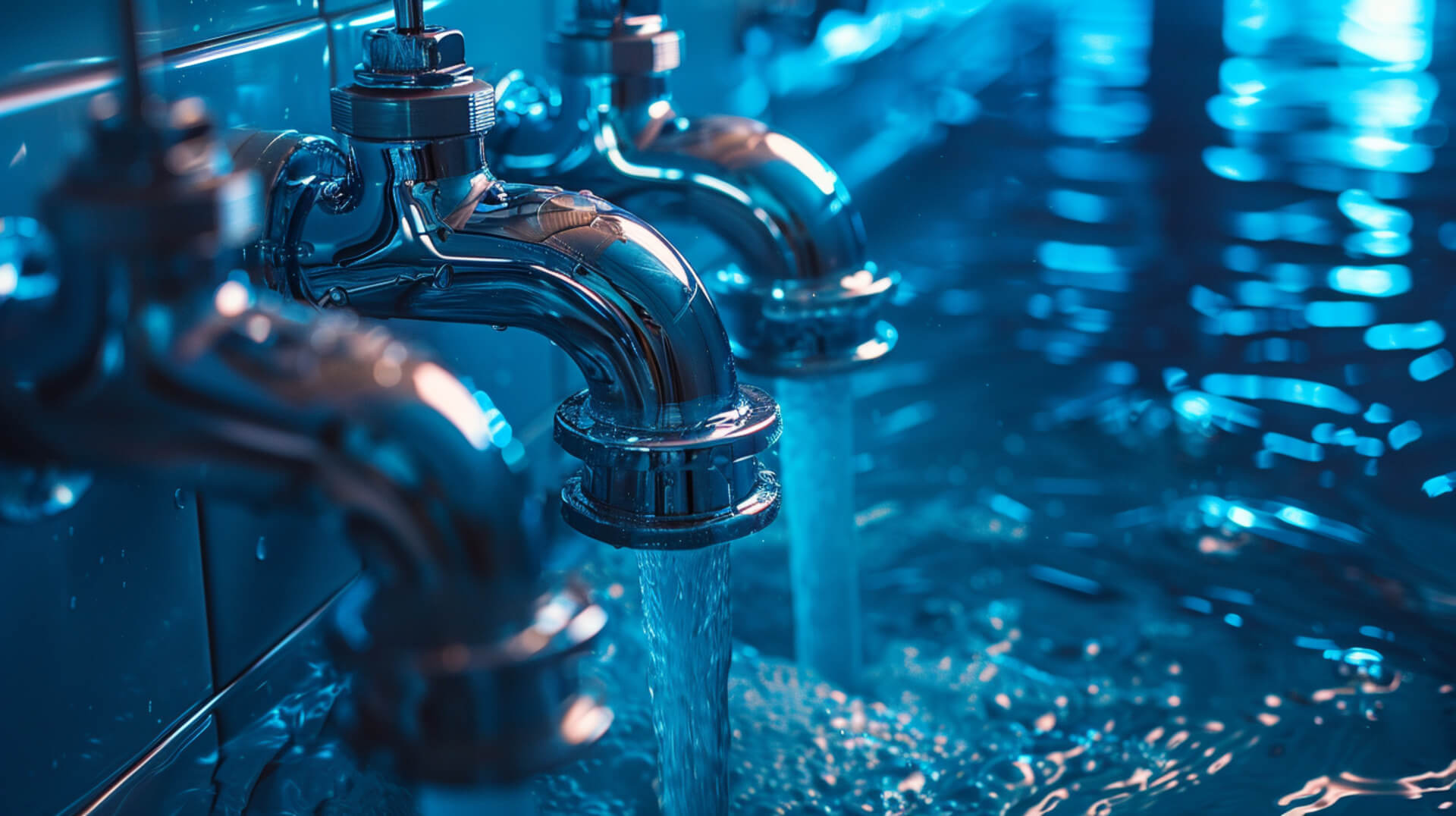
Preventing drain blockages is more efficient and less costly than addressing them after they occur. Here are strategies to help you maintain clear and functional drains.
Kitchen Hygiene Practices to Prevent Blockages
- Scrape Pans Before Washing: Remove food scraps from pans and plates into the trash before rinsing them in the sink.
- Proper Food Waste Disposal: Use a compost bin for organic waste rather than the garbage disposal to minimise the risk of clogs.
Bathroom Habits to Mitigate Blockage Risks
- Use Hair Catchers: Place hair catchers in shower and bathtub drains to collect hair and prevent it from clogging the pipes.
- Dispose of Non-Degradable Items Properly: Items like wipes and cotton buds should be thrown in the trash, not flushed down the toilet.
The Necessity of Regular Drain Maintenance
- Routine Inspections: Regularly check your drains for slow drainage or unusual noises, which can be early signs of blockages.
- Professional Cleaning: Consider scheduling annual professional drain cleaning to remove buildup that could lead to blockages.
Ensuring Professional Installation and Repair
- Hire Qualified Professionals: For installations and repairs, always use licenced plumbers to ensure the work is done correctly and up to code.
- Warranty and Service Records: Keep a record of any professional service done on your plumbing system for warranty and maintenance purposes.
By implementing these strategies, you can significantly reduce the likelihood of drain blockages and maintain a smoothly functioning plumbing system.
Remediation Techniques for Clearing Blockages

When faced with a drain blockage, property owners have several methods at their disposal to remedy the issue. From simple home solutions to professional interventions, the approach depends on the severity of the blockage.
Home Remedies for Minor Blockages
For minor clogs, the following home remedies can be effective:
- Hot Water: Boiling water can help dissolve grease and soap buildup.
- Vinegar and Baking Soda: This combination creates a fizzing action that can dislodge blockages.
- Plunging: A plunger can create enough suction to clear blockages caused by soft materials.
Professional Blockage Removal
In cases where home remedies are insufficient, professional removal may be necessary:
- Severe Clogs: If the blockage persists after home treatment, it may be too deep or solid for DIY methods.
- Recurring Issues: Frequent blockages might indicate a more complex problem that requires professional diagnosis and treatment.
High-Pressure Water Jets
Professionals often use high-pressure water jets to clear blockages:
- Mechanism: These jets send a powerful stream of water through the pipes, which can break apart even the toughest clogs.
- Effectiveness: The force of the water is usually enough to clear blockages without damaging the plumbing.
Benefits of CCTV Inspection
CCTV inspections are a valuable tool for diagnosing drain issues:
- Visual Diagnosis: A camera is sent down the drain to provide a live feed of the pipe’s interior, allowing for accurate identification of blockages.
- Precise Location: This method pinpoints the exact location of the blockage, facilitating targeted remediation efforts.
By understanding these remediation techniques, property owners can make informed decisions on how to address drain blockages effectively.
The Role of Consumer Behaviour in Drain Health
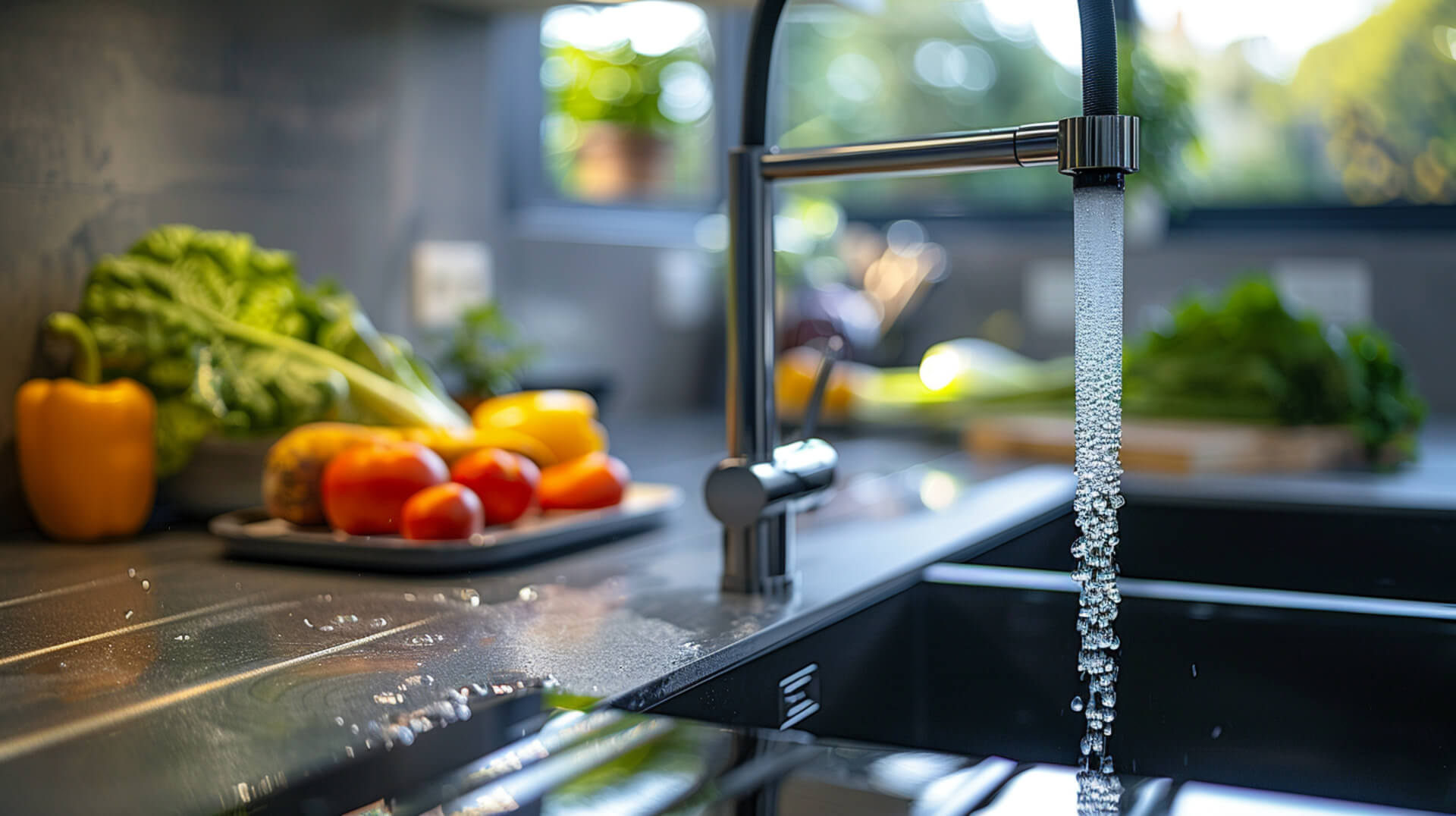
Consumer choices play a pivotal role in maintaining the health of drainage systems. By making informed decisions about the products used in homes and businesses, individuals can significantly reduce the risk of blockages.
Impact of Product Selection on Drain Blockage Risk
The selection of household products directly affects the likelihood of drain blockages:
- Liquid vs. Powdered Detergents: Liquid detergents are less likely to contribute to blockages compared to powdered ones, which may not dissolve fully and can accumulate in pipes.
- Biodegradable vs. Non-Biodegradable Items: Choosing biodegradable items, such as toilet paper and wipes, helps prevent the buildup of materials that do not break down easily.
Importance of Biodegradable Product Awareness
Awareness of the environmental impact of non-biodegradable products is crucial:
- Environmental Protection: Biodegradable products are less likely to cause long-term damage to waterways and wildlife.
- Sewage System Health: These products support the functionality of sewage treatment facilities by reducing the occurrence of blockages.
Systemic Solutions for Drain Health
Adopting systemic solutions can lead to healthier drains:
- Waste Management: Proper disposal of oils, grease, and food waste can prevent the most common causes of blockages.
- Regular Maintenance: Routine checks and cleaning can catch issues before they escalate.
Consumer Education’s Role in Reducing Blockages
Educating consumers about the causes and prevention of drain blockages is essential:
- Awareness Campaigns: Informational campaigns can inform the public about the consequences of improper disposal practices.
- Guidelines and Best Practices: Providing clear guidelines on what can and cannot be disposed of via drains can lead to better consumer habits.
By understanding the connection between consumer behaviour and drain health, individuals can make choices that not only prevent blockages but also contribute to the overall sustainability of water management systems.
Challenges Faced by Professional Kitchens and Plumbing Systems
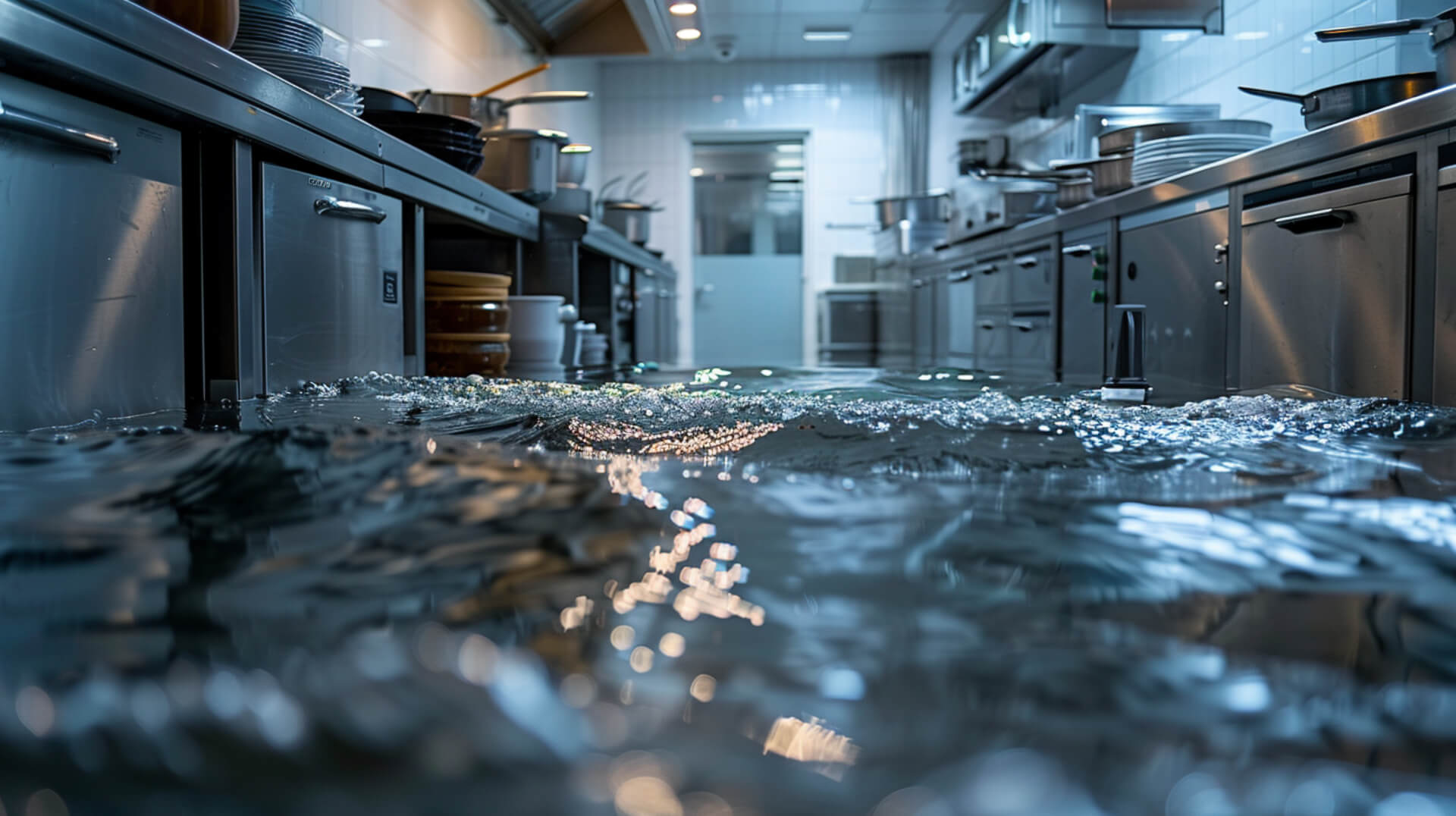
Professional kitchens and plumbing systems encounter unique challenges when it comes to drain blockages. The high volume of waste, particularly fats, oils, and grease (FOG), can lead to frequent and severe clogs.
Optimising FOG Management in Commercial Settings
In commercial environments, managing FOG effectively is critical:
- Grease Traps: Installing and maintaining grease traps can prevent FOG from entering the plumbing system.
- Staff Training: Educating kitchen staff on proper disposal methods can reduce the amount of FOG that goes down the drain.
The Crucial Nature of Legal Compliance for Business Owners
Compliance with regulations is non-negotiable:
- Health and Safety Standards: Adhering to health and safety standards ensures that plumbing issues do not compromise food safety or sanitation.
- Environmental Regulations: Following environmental regulations helps prevent pollution and avoid legal penalties.
Essential Maintenance Practices for Clog Prevention
Regular maintenance is key to preventing blockages:
- Routine Checks: Frequent inspections can catch early signs of blockages, allowing for prompt intervention.
- Professional Cleaning: Scheduling regular professional cleaning can prevent the buildup of substances that cause blockages.
By addressing these challenges with proactive management and compliance with regulations, professional kitchens can maintain efficient and safe operations.
Responsibilities of Homeowners and Property Managers in Drain Maintenance

Maintaining a property’s drainage system is a critical aspect of property management that ensures the functionality and habitability of the living space. Homeowners and property managers must be proactive in their approach to prevent blockages and address them promptly when they occur.
Preventive Measures to Avoid Blockages
Homeowners should adopt the following practices to minimise the risk of drain blockages:
- Regular Cleaning: Keep drains clear of hair, soap scum, and food particles to prevent buildup.
- Proper Disposal: Educate all household members on what should not go down the drain, including grease, coffee grounds, and non-flushable items.
Ensuring Timely Repairs and Maintenance
Property managers are responsible for:
- Scheduled Inspections: Conduct regular inspections to identify and address potential issues before they escalate.
- Responsive Repairs: Act swiftly when blockages are reported to prevent further damage and inconvenience to tenants.
The Importance of Warranty of Habitability
The warranty of habitability requires property managers to:
- Maintain Systems: Ensure that plumbing systems are in working order and safe for tenant use.
- Address Issues: Resolve any issues that could affect the tenant’s health or safety, including drainage problems.
Information Provision to Tenants
Tenants should be informed about:
- Best Practices: Provide guidelines on how to use and maintain drains properly.
- Reporting Procedures: Clearly communicate how tenants can report drainage issues to facilitate prompt action.
By fulfilling these responsibilities, homeowners and property managers can ensure the longevity of their property’s plumbing systems and the comfort of their tenants.
Infrastructure Maintenance and Governmental Oversight

Local governments play a pivotal role in the maintenance of sewer and drainage infrastructure, ensuring the functionality and safety of these essential systems.
Local Government Contributions to Infrastructure Maintenance
Municipalities are tasked with:
- Regular Inspections: Conducting systematic checks of the sewer systems to identify and rectify potential issues.
- Upkeep and Repairs: Implementing maintenance programmes to repair and upgrade infrastructure, thereby preventing blockages and overflows.
Regulatory Oversight of Sewer and Drainage Systems
Regulatory bodies enforce standards through:
- Legislation: Establishing laws and regulations that dictate the management of sewer and drainage systems.
- Compliance Monitoring: Ensuring that these systems are operated in accordance with established guidelines to prevent environmental damage and public health risks.
The Importance of Emergency Response Planning
Emergency planning is crucial for:
- Immediate Action: Facilitating a rapid response to drainage emergencies, such as blockages or system failures, to minimise impact.
- Public Safety: Protecting the community from the potential hazards associated with sewer system malfunctions.
Preventative Advice from Professionals
Expert guidance can significantly reduce the risk of blockages:
- Educational Outreach: Providing information to the public on how to prevent blockages through proper disposal practices.
- Professional Consultation: Offering access to expert advice for both routine maintenance and emergency situations.
Through these combined efforts, local governments and regulatory bodies work to maintain the integrity of sewer and drainage systems, safeguarding public health and the environment.
Recognising the Signs of Impending Drain Blockages
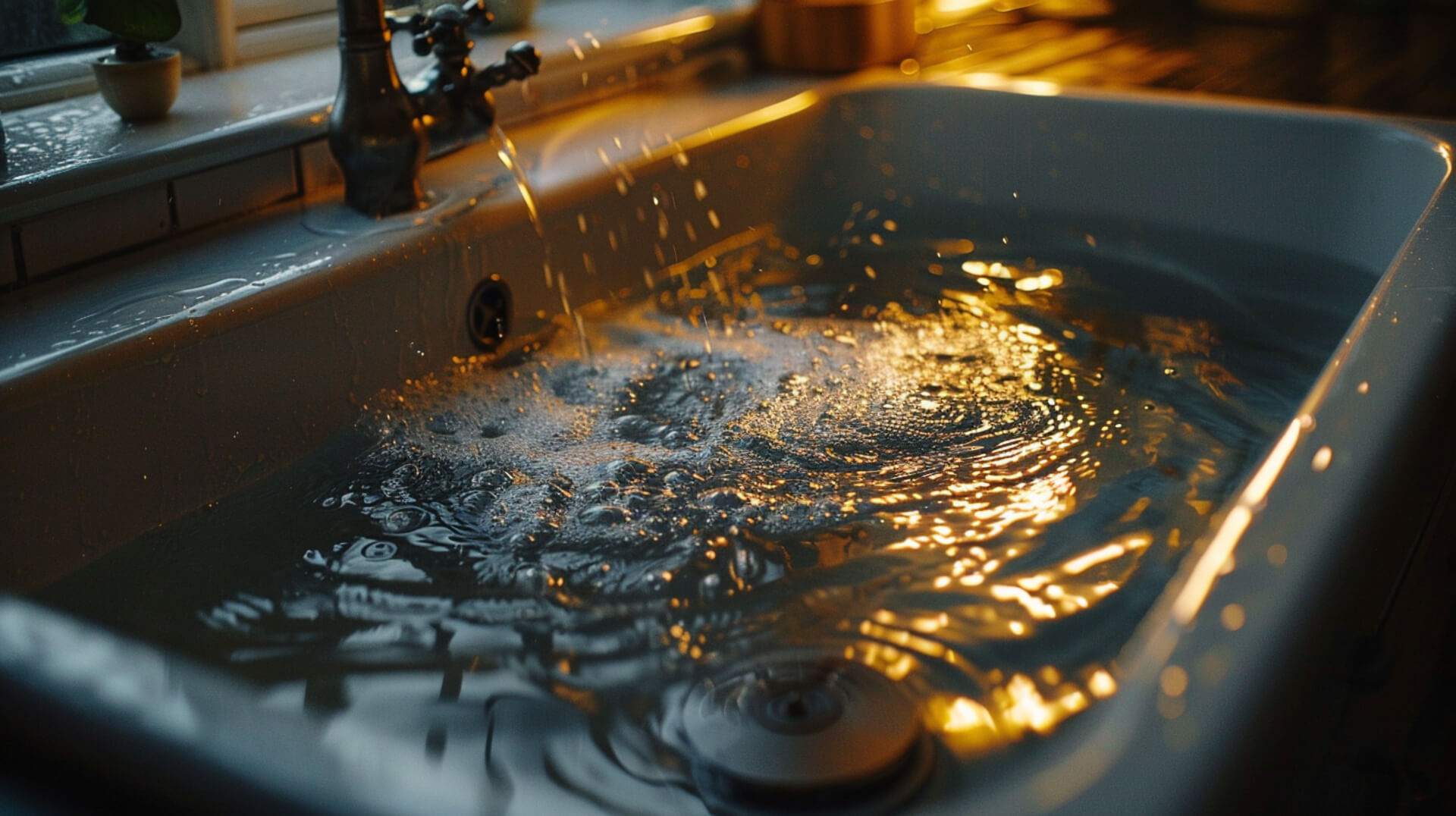
Vigilance is key in preventing the inconvenience of a fully blocked drain. Property owners should be aware of the early warning signs that indicate a potential blockage is forming.
Early Warning Signs of Potential Blockages
Several indicators suggest a blockage may be developing in your drainage system:
- Slow Drainage: If water is draining more slowly than usual, it could be a sign that a blockage is forming.
- Unpleasant Odours: Foul smells emanating from your drains can indicate trapped food particles or other decaying material.
- Gurgling Sounds: Noises coming from the drains might be air trapped in the pipes due to a blockage.
Responding to Signs of Blockages
Upon noticing these signs, immediate action is recommended:
- Investigate: Check for visible blockages that can be easily removed.
- Home Remedies: Try using a plunger or a mixture of vinegar and baking soda to clear minor blockages.
- Professional Help: If the issue persists, it may be time to call a professional plumber.
Routine Inspections for Early Detection
Regular inspections can help identify blockages early:
- Check Drains Regularly: Look for slow drainage and listen for unusual sounds.
- Professional Assessment: Schedule annual inspections with a licenced plumber to ensure your drains are clear.
By recognising and responding to these early signs, you can prevent the stress and cost associated with severe drain blockages.
Comprehensive Approach to Drain Blockage Prevention and Management
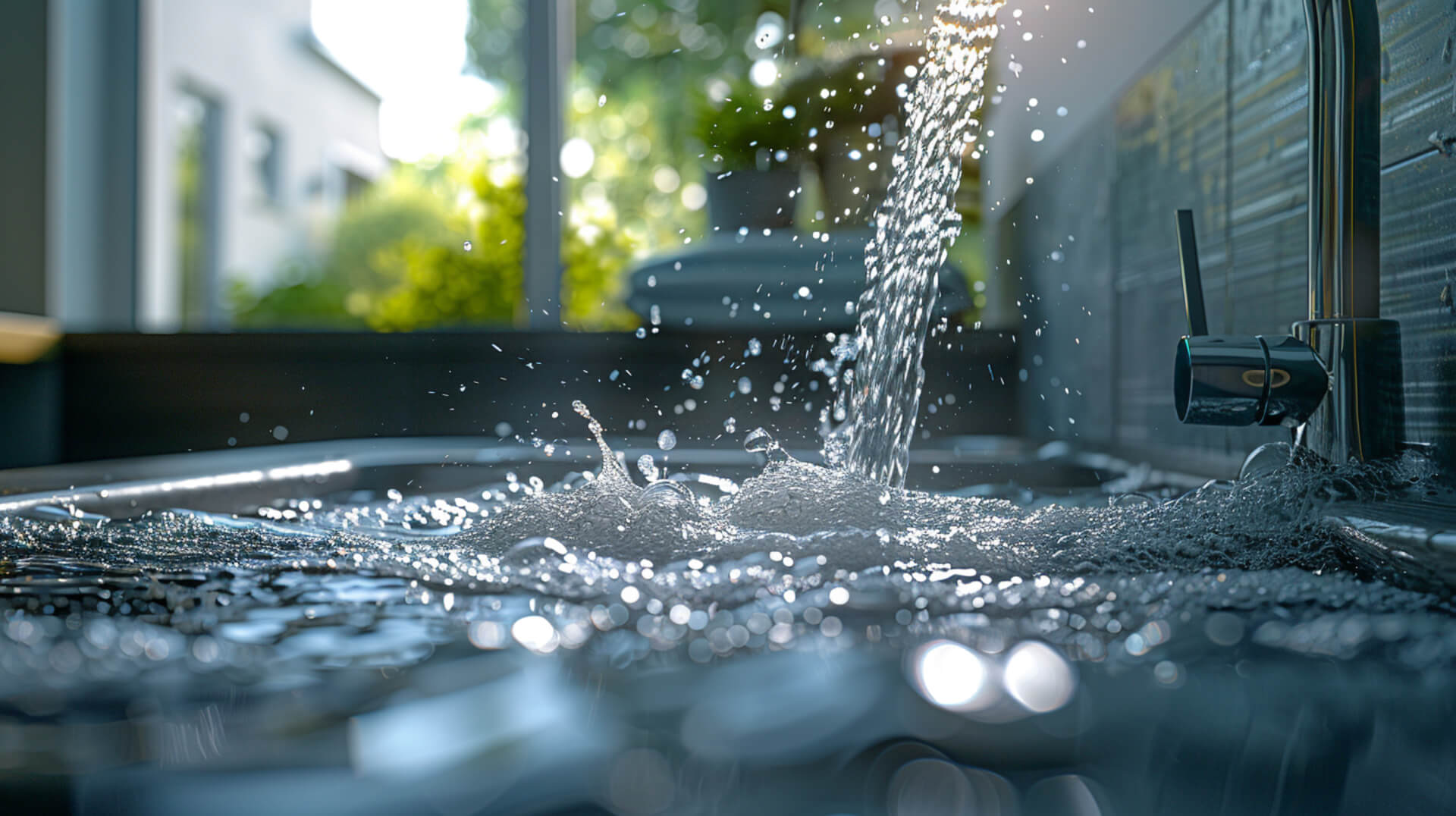
A multifaceted approach to drain management is essential due to the complex nature of blockages and the variety of factors that can contribute to them. Integrating various strategies can significantly benefit property owners by reducing the frequency and severity of blockages.
Benefits of Integrating Prevention, Maintenance, and Education
- Prevention: Implementing strategies to avoid the introduction of blockage-causing materials into the drainage system.
- Maintenance: Conducting regular inspections and cleaning to ensure the drainage system remains clear and functional.
- Education: Informing tenants and staff about best practices for drain usage and the importance of reporting early signs of blockages.
Role of Professionals in Sustainable Water and Waste Management
Professionals in plumbing and waste management play a critical role:
- Expertise: They provide specialised knowledge and skills to address and prevent complex drainage issues.
- Support: Their support is crucial in implementing sustainable practices that align with environmental regulations and standards.
Staying Informed About Best Practices in Drain Management
For property owners, business owners, and facility managers, staying informed is key:
- Resources: Utilise online resources, workshops, and professional consultations to stay updated on the latest best practices.
- Networking: Engage with industry professionals and local authorities to share knowledge and experiences related to drain management.
By embracing a comprehensive approach that includes prevention, regular maintenance, and ongoing education, stakeholders can ensure the longevity and reliability of their drainage systems.
